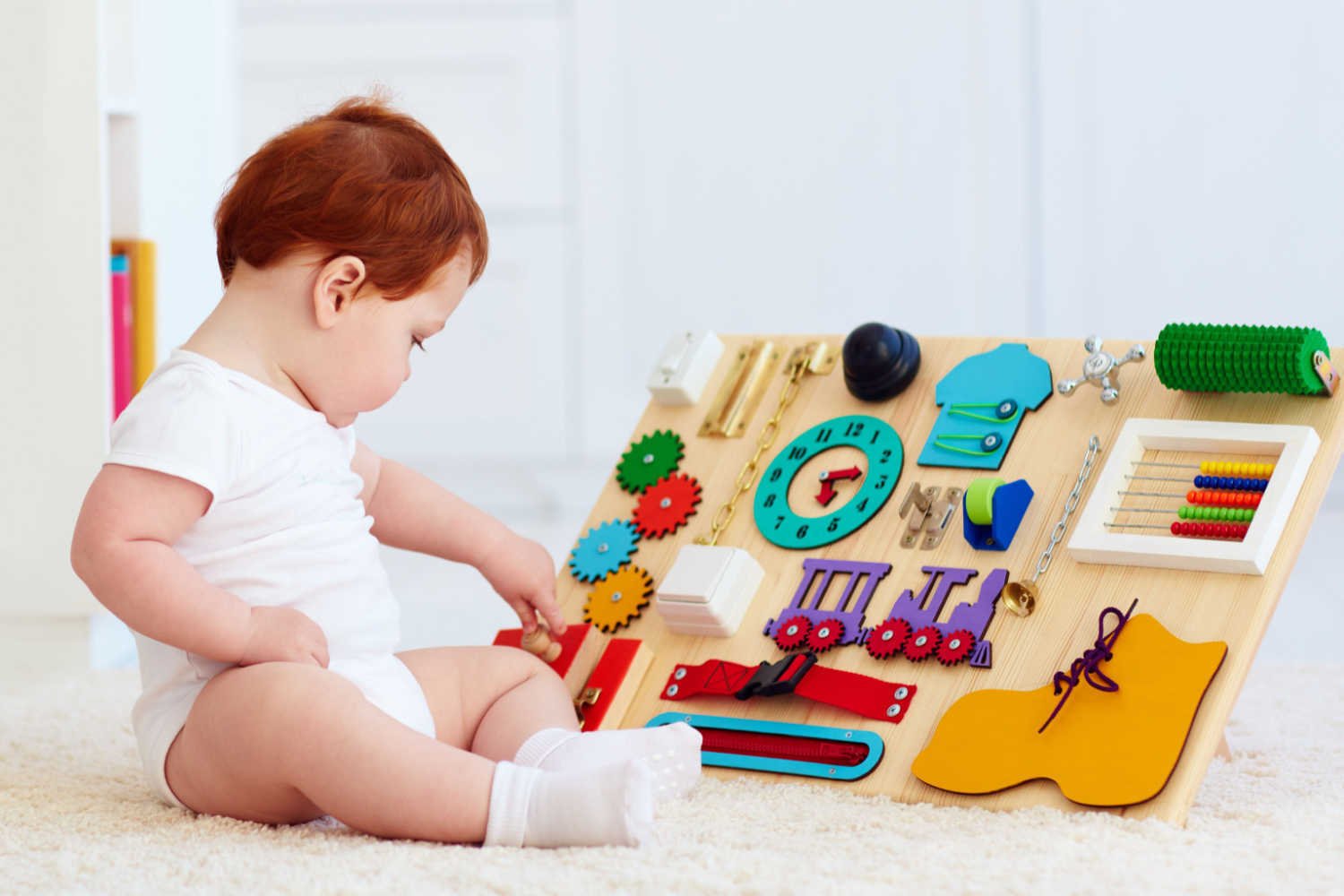
Living With Severe Combined Immunodeficiency in Babies – Do’s and Don’ts by Dr. Sagar Bhattad
11 min readWritten by Sindhuja Prabhu


We are all born with an immune system, which is immature. A newborn is protected by the antibodies from the mother and is protected against many infections for a few weeks. After this, the body’s immune system starts building up. As the baby gets exposed to the environment and other infections, the immune system learns to fight and thus gets stronger.
Now, what happens if the baby does not develop this immunity? What if the baby is born with a deficient immune system? Yes, as scary as it may sound, it is possible. It is a very rare disease but not unheard of.
In This Article
- What is Severe Combined Immunodeficiency in Babies?
- What Happens in Severe Immunodeficiency?
- Causes of SCID in Infants
- Signs and Symptoms of Severe Combined Immunodeficiency in Babies
- How is Severe Combined Immunodeficiency in Babies Diagnosed?
- How is SCID Treated in an Infant?
- Things to Follow When Living With a Severe Immunodeficiency
- Things to Avoid When Living With a Severe Immunodeficiency
What is Severe Combined Immunodeficiency in Babies?
Severe combined immunodeficiency more commonly known as SCID is a very rare genetic disorder that affects the immune system. It is a type of primary immune deficiency, which can cause life-threatening problems for the child.
SCID is an inherited disease that is seen in infants. It can cause the immune system to become very weak and incapable of fighting even the most common infections known to mankind. This is why a newborn is screened for SCID immediately in the developed world (eg. the USA). Most cases result in a fatal death if the child is not diagnosed and treated for SCID.
Severe immunodeficiency has many variants that are seen to present themselves in both males and females.
What Happens in Severe Immunodeficiency?

Severe combined immunodeficiency (SCID) affects the white blood cells that are supposed to fight infections. The bone marrow is where the various blood cells – red blood cells, white blood cells as well as platelets are produced. A lymphocyte is a type of white blood cell that is instrumental in fighting infections.
The lymphocytes can further be divided into B-Cells and T-Cells. These two cells are responsible for effectively fighting off foreign invaders and producing antibodies to protect the body.
While the T cells fight and kill the invaders, the B-Cells produce the antibodies that not only help the body recover from the infection but also remember the invaders. This memory is what helps the immune system recognize a foreign invader and fight it effectively when it attacks the body again.
In SCID, there is a problem with both the T-Cells and the B-Cells. Now, since both parts of the lymphocytes are not working as they should, the immune system is very weak and does not know how to protect the body even against small infections. It cannot fight effectively against viruses, bacteria, and fungi.
Causes of SCID in Infants
Severe combined immunodeficiency is a genetic disorder, meaning it is passed from the parent to the baby. However, only 20% of the SCID cases have a family history of this condition. The other 80% don’t. The cause of the gene defects in these cases is unknown.
According to studies, SCID can be X-lined or autosomal recessive in inheritance.
a) X-linked SCID
Only boys are affected by the type of SCID. The defective gene is on the X-chromosome. As boys have only one X-chromosome (boys are XY), they develop the disease if the gene is defective. In these cases, the mother is a carrier, however, she has no disease. This is because, the mother has two X-chromosomes (XX), and while one gene on the X-chromosome is defective, the other one is normal. There is a 50% chance that the next boy may be affected in these families.
b) Autosomal Recessive SCID
In these cases, both boys and girls can get affected. Both parents carry a defective gene, however, they have no disease. They are called carriers. When both defective genes are passed on to the offspring, the baby develops the disease. There is a 25% chance that the next child may be affected in these families.
There are different SCID variants.
1. X-Linked SCID
X-linked recessive disorder is caused by defects in IL2RG (common gamma receptor gene). Boys are affected and mothers are carriers.
2. ADA SCID
Autosomal recessive form of SCID may be caused by defects in a dozen genes. ADA is a commonly known variant of SCID. In this, the infant will lack the ADA enzyme which is essential for the survival of the T-Cells. When this particular enzyme is not present in the body, it leads to a build-up of toxic metabolic by-products within the lymphocytes, which will cause the lymphocytes to die. In this variant, the count of all three cells – T, B, and NK cells is low.
3. RAG-1 or RAG-2
These are critical enzymes for the healthy development of the T-Cells and B-Cells. Babies with this type of SCID will either have a low count or absent T and B cells. The NK cells will be unaffected.
4. IL7R SCID
This is due to a mutation in a gene on chromosome 5. The baby will have no T cells, which in turn will prevent the B cells from working, though present.
5. Janus Kinase 3
This is due to a mutation in a gene or a defect in chromosome 19. It is very similar to X-linked SCID but can be found in both boys and girls.
There are several other varieties of SCID caused due to a defective gene. They are not very common. In western countries, all newborns are regularly screened for SCID at birth. This helps in very early diagnosis and hence treatment of these babies. However, these facilities are not yet available in India. Most babies are diagnosed when they develop repeated infections.
Signs and Symptoms of Severe Combined Immunodeficiency in Babies

Many babies with SCID will seem healthy at birth. So they might pass the initial regular screening, which does not include SCID screening. These babies might show the following symptoms soon after birth:
- Chronic diarrhoea
- Frequent and serious respiratory issues/pneumonia
- Oral thrush – fungal infection in the oral cavity
- Various bacterial, viral, or fungal infections that may not be easy to treat (skin rashes, pneumonia, meningitis)
- Failure to thrive (do not gain weight and height)
- Yeast infections in the diaper area and the mouth
- Hepatitis (liver infection)
- Infection in the blood
It can be easy to miss these symptoms at first as babies are bound to experience most of the above-mentioned infections at one point or the other. However, with SCID, the infection is more severe and more frequent. It can affect the baby to a great extent.
Since the immune system is weak or close to non-existent, the baby will not recover as expected. When you notice a delay in recovery or constant relapses, it is a warning sign that you need to check for immunity deficiency. This is a serious disease and a medical emergency. Most babies with SCID do not cross their first birthday.
How is Severe Combined Immunodeficiency in Babies Diagnosed?

With the advancement of science, doctors today take a simple blood test soon after birth to screen the baby for SCID. The earlier the diagnosis, the better are the chances of survival and effective treatments. However, these screening tests are not routinely performed in our country at the moment.
The most important reason for the delay in diagnosis is the lack of awareness of this disease amongst medical professionals! Yes, many doctors are NOT aware of this condition. Unless the treating doctor suspects this condition, there is no way, these young babies can be diagnosed and treated. Once your doctor has suspected this condition, a few blood tests looking for T and B cells in the blood can help diagnose this serious condition.
How is the Diagnosis of SCID Made?
Lymphocytes are very low in babies with SCID. Doctors can look at the lymphocyte number in the blood test. This test is easily available in every place. The next step is to look at the T cells, B cells and NK cells. If T-cells are low, it is likely SCID. Genetic testing would confirm the diagnosis.
Most often, the diagnosis of SCID is delayed for many months. Only when the baby has repetitive infections and does not recover as expected, will the doctor order relevant tests.
In cases where the baby is not diagnosed or treated, the infant may not survive past one year of birth. In a few cases, the child may survive till the age of two. When SCID is suspected, it is very essential to get an opinion from a Pediatric Immunologist, who regularly treat these babies and have a lot of experience in handling these sick children.
[Read : Recurrent Infections in My Toddler – When Should I Bother ]
How is SCID Treated in an Infant?

The treatment for SCID will depend on:
- The age of your child
- How early SCID was diagnosed
- The health of your baby
- The symptoms they show
The only effective and curative treatment for SCID is a bone marrow transplant where the defective or affected bone marrow is replaced with a healthy one. In most diagnosed cases, the doctor will try to do the transplant within the first 3 months of birth itself. This gives the baby better chances to adapt to the new bone marrow and lead a healthy life.
Gene therapy is another option, but it is still in its infancy stage. There are high hopes for this one in the future, as research advances.
Apart from the transplant, your doctor might also
- Treat the current infection to help your baby recover from, and reduce the impact of the infection.
- Give IVIG injection – that would boost the immunity for a while.
- Stabilize the baby until a transplant is possible.
- Keep the baby in a controlled environment to prevent new infections and reduce exposure to germs.
Things to Follow When Living With a Severe Immunodeficiency
Now that your baby has been diagnosed with a severe immune deficiency, what can you do? It is essential to seek a consult from a doctor who has experience in treating these rare conditions. A Pediatric Immunologist would guide you on the treatment of your child. An urgent bone marrow transplant would be curative and your baby can lead a normal life, once a bone marrow transplant has been done. Until a bone marrow transplant is performed, you must exercise utmost caution and try to prevent any infection in your baby.
Here are a few Do’s you can follow to make it a little easier on both the child and the family taking care of the child.
1. Bone Marrow Transplant
A BMT is the best option available so far for those suffering from severe immune deficiency. The transplant has more success if it is done within 3.5 months of birth. The earlier the transplant, the better are the chances of survival.
The stem cells are taken from a sibling who can be a perfect match. In case of no siblings, the parents can be a donor if they are a good match. If parents or anyone from the immediate family are not a match, an unrelated donor is used.
2. Enzyme Replacement Therapy
This therapy also called PEG-ADA, has been fairly successful in cases of SCID with ADA. This is not readily available in India.
3. Regular IVIG injections

IVIG injections should be given every month until BMT is performed. This would help fight infections.
4. Regular Tests
It is important to take regular tests as suggested by the doctors to keep track of what infections your baby is incurring and to gauge the extent of the damage. In case of damages to vital body parts, the earlier you know, the better can be the effect of the treatment. The doctor will be able to treat the infection before it can cause serious damage to the body.
5. Safe Environment
Babies with SCID have very low to no immunity when it comes to various pathogens in the environment. You need to keep your baby in a clean environment. When a baby is hospitalized for SCID, they are put in a room with filtered air. Everyone is not allowed to come in, in order to avoid contamination. You will have to follow similar protocols at home too. Though very difficult,
- Try to restrict entry into your baby’s space or room.
- Ensure you sanitize your hands and all items your baby uses.
- Ensure others sanitize their hands before they touch your baby.
- Refrain from letting anyone with any infections enter the house.
6. Clean Intake
What your child eats and drinks is very important if they are diagnosed with SCID. Food and water-borne diseases can be dangerous for their weak immune systems. You can:
- Give them cleanly boiled and filtered water to avoid contamination.
- Avoid eating outside food as it can be contaminated.
- Ensure utensils are well washed and sterilized after every use and before the child uses them.
- Ensure no one shares their cutlery or utensils with your child.
7. Hospital Visits

You may have to take your infant to a hospital regularly. Every time they have a severe infection, they might have to be hospitalized and taken care of all around the clock. The doctor will want to keep the child under close supervision and in a sterile environment, where even you may not be allowed to enter.
8. Empathetic
It is going to be very hard on a child to not experience physical touch, connection, play with other children or even explore new toys or items. They are going to throw tantrums and refuse treatments at one point or the other. As they grow up, they will understand more and may even request to let go without any treatment. As a parent, this will be very tough to handle but you need to be empathetic. You need to put yourself in their shoes to understand at least to a certain extent how it feels to live in a bubble and not explore anything around. It can be mentally very traumatic for a child.
9. Diet Control

Your doctor and dietician will come up with a specific diet to help build your child’s immunity. It might also change as and when they have an infection and the body needs extra reinforcements to fight back. The professionals might give supplements, medicines, etc., to support the weak immune system. Ensure you follow this closely and do not let your child stray away too much.
10. Patience
It will be exhausting trips to the hospital, clinics, the endless search for medicines and treatments. You need to be patient and not try to speed up any procedure. Babies, especially the ones with such illnesses, will definitely try your patience and push you to your limits. You need to handle it with calm and patience.
11. Record
Keep a record of all the medications taken, the reactions to them. Maintain a journal about the various infections and how the baby coped through them. This can be very useful to help the infant recover faster the next time, and to avoid the same mistakes as the previous times.
[Read : How to Increase Immunity in Babies? by Dr. Sagar Bhattad]
Things to Avoid When Living With a Severe Immunodeficiency
Here are a few things you ought to avoid for the safety of your child with severe immunodeficiency –
- Don’t let anyone enter the house with their footwear.
- Don’t allow anyone to enter the child’s room unnecessarily.
- Do not go near your child if you have any infections, be it a cold, cough, or anything even mild.
- Do not let your child share their spoons, bottles, glass, or plates with others; even their own siblings or parents.
- Do not let people give store-bought things directly to your child. Always sanitize it first and ensure there are no sharp ends that can hurt your child.
- Do not have any pets in the house. Pet hairs can be major allergy triggers.
- Do not skip any doctor’s appointments or delay any tests. There is a reason for your doctor to insist on these visits on a very regular basis.
- Do not allow any blood transfusions that are not double-checked for your baby’s particular blood type. A tiny mistake can become fatal.
- No immune booster on the market can cure your child. Do not spend your hard earned money on these products. Only a bone marrow transplant can cure your child with SCID.
Living with a severe immune deficiency is quite a challenge for both the child and the family around. It can take a physical and mental toll on everyone. It is important to follow the doctor’s orders and get as much help as possible when needed. Timely diagnosis and treatment can cure children with SCID. Once cured, they lead a healthy life.
Read Also: The Story of the Bubble Boy – What is it to Have a Serious Immune Deficiency? by Dr. Sagar Bhattad

Sindhuja Prabhu,M.Sc (Psychology),PGDBM
Sindhuja, a mother of two, is an obsessive mom with a keen interest in psychology, especially child psychology. Her quest for knowledge and way with words led her to become a passionate content writer. She transformed her love for writing into a full-fledged career which incidentally also turned up being the perfect stress buster for the last 5 years.Read more.
Responses (0)
Want curated content sharply tailored for your exact stage of parenting?
Related articles

Tickling Babies – When Can You Start and When to Avoid

Chair Method of Sleep Training Your Baby – Know All About it

Stress in Babies – Causes & Prevention

Hummus For Babies – When to Introduce, Benefits and Precautions

Cause and Effect Toys For Babies – How it Helps in Baby’s Motor Development

Busy Boards For Babies – How it Helps in Baby’s Development
Sponsored content
Discover great local businesses around you for your kids.
Get regular updates, great recommendations and other right stuff at the right time.





